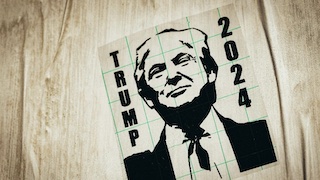Dec 11 (News On Japan) - Navigating the stock market can feel like a daunting task, but trading bots have emerged as a remarkable tool to simplify the process.
I've always been fascinated by how these automated systems can execute trades with precision and speed that human traders can't match. It's a game-changer, allowing even novice investors to participate in a market once dominated by seasoned professionals.
However, the rise of trading bots brings with it a host of ethical considerations. As we embrace this technological marvel, it's crucial to reflect on its impact on market fairness and transparency. I find it intriguing how these bots can level the playing field, yet also pose challenges to traditional trading norms. The ethical implications are vast and complex, but they offer a unique opportunity to rethink how we engage with the stock market in a way that's both innovative and responsible.
Understanding Trading Bots in the Stock Market
As I delve into the world of stock trading, trading bots have become an intriguing point of interest. They offer a mix of automation, precision and efficiency.
Definition and Functionality of Trading Bots
Trading bots are AI systems that automate stock trading. They're programmed to make trade decisions using predefined criteria, such as market trends. By analyzing historical financial data, they predict market movements accurately. I find it fascinating how these bots process data at speeds we can't match. They execute trades based on algorithms, minimizing human error and emotional impact. This makes them powerful tools in today's fast-paced markets. Their ability to handle complex calculations leaves me impressed with their capabilities. Trading bots enable more informed decision-making, improving overall trading efficiency.
Popularity and Prevalence in Modern Trading
AI trading bots have gained popularity for their speed in executing trades. They're now common tools among traders, leveling the playing field. With their algorithmic processes, they reduce emotional bias. When I see bots' effectiveness firsthand, it's easy to understand their appeal. They're used by both professional and novice traders, ensuring a competitive edge. Their widespread use signifies a shift in trading practices. From my perspective, they provide an innovative approach to investment, adapting quickly to market changes. This surge in bot usage reflects their tangible benefits. As I've seen, they reshape the modern trading landscape, offering new opportunities and challenges.
Analyzing the Efficiency of Trading Bots
Trading bots change how I view the stock market. Their speed and precision offer benefits that can't be ignored. I've seen how they transform trading strategies with ease.
Advantages Over Human Traders
Trading bots execute trades swiftly. They analyze huge volumes of data in seconds. The absence of emotional decisions sets them apart. I appreciate how they avoid panic selling or impulsive buying. Their capacity for 24/7 operation means they're unaffected by fatigue. Trading bots bring consistency and reliability that most humans find hard to match. They notice market trends that human eyes miss, boosting the effectiveness of any strategy.
Potential for Higher Profits and Accuracy
Bots increase my potential for profit. Through analysis, they identify opportunities I might overlook. Their precision enhances trade accuracy. They adapt to changing market conditions, improving decision-making over time. When I use trading bots, I see an increase in successful trades. They're precise, and their error margin is minimal. This brings higher profit margins. Receiving timely insights and executing quick decisions maximizes gains.
Exploring The Ethical Implications of Using Trading Bots in the Stock Market
As trading bots revolutionize market dynamics, I can't help but ponder their ethical dimensions. Let's dive into fairness, accessibility, stability, and regulation.
Fairness and Accessibility Concerns
Trading bots amplify fairness concerns. They create a market where wealthier investors have access to technology others lack. This widens the gap, leaving smaller participants at a disadvantage. Wealth disparity could expand as only those with deep pockets exploit advancements fully. Job displacement also looms as a concern. Bots could replace human roles, making jobs in analytics and trading redundant. This shift impacts workers reliant on manual trading skills. It's a reminder of the ethical balance we need to maintain. I personally feel this could enrich our market ecosystem, but we must tread carefully.
Impact on Market Stability and Regulation
Trade bots challenge market stability. Their algorithms can react swiftly, leading to sudden market shifts. Such volatility raises concerns about market manipulation. Existing regulations might struggle to keep up with these fast-paced tools. There needs to be a robust framework to regulate this landscape. Balancing innovation and control is vital. I've often thought about how this affects investor trust. Regulation should aim to ensure a level playing field. A stable market benefits all of us, and I hope we see thoughtful regulatory advancements soon.
Examining Investor Protections and Trust
When exploring trading bots' impact on investor protections and trust, ethical concerns become crucial. Understanding these issues helps me navigate the stock market with confidence.
Transparency and Accountability of Algorithms
Transparency's key in trading bots' algorithms. Knowing what algorithms do builds trust. If creators disclose algorithmic functions, investors can assess risks better. Trust emerges when bots' role is clear, enhancing market integrity. Enabling external audits boosts confidence, reducing fear of manipulation. Clear explanations of trading decisions by bots instill confidence in their use. As an investor, transparency allows me to make informed decisions, knowing the risks involved.
Moral Responsibility of Traders and Developers
Traders and developers shoulder a moral responsibility. They're tasked with ensuring fairness in bots' actions. Ethically designed bots prevent market manipulation, fostering trust. Developers create algorithms that reflect ethical guidelines. Traders must exercise ethical judgment in using these tools. Responsible one use prevents exploitation of less informed investors. Adopting ethical guidelines aligns bots' actions with market integrity goals. As users, we enjoy increased fairness and trust in the trading environment.
Balancing Innovation and Ethics in Trading
Innovation in the stock market, driven by AI trading bots, requires careful ethical consideration.
Creating a Fair Regulatory Environment
I believe a robust regulatory framework is crucial to ensure market fairness. Regulators need to mandate transparency in trading bots’ algorithms. Rules should address potential biases and market manipulation to protect investors. Ensuring all investors have equal tech access is vital. I’ve noticed that regulations can help maintain trust. Supervision prevents unfair advantages and levels the trading field. These steps create a fair, responsible stock trading ecosystem.
Encouraging Ethical AI and Algorithm Development
Developers must focus on ethical AI design to prevent biases. Regular audits and updates for algorithms are necessary. I find that prioritizing fairness across all data sets can reduce disparities. Developers should adopt ethical guidelines for bot behavior. This fosters trust and integrity in stock markets. Clear documentation of algorithm functions boosts accountability. I've seen how ethical development keeps the market balanced and fair. This approach ensures trading innovations benefit everyone equally.
Conclusion
Navigating the ethical landscape of trading bots in the stock market requires careful consideration and a balanced approach. While these AI-driven tools offer remarkable advantages in speed and efficiency, they also pose significant ethical challenges that need addressing. It's crucial to ensure that as we embrace technological advancements, we don't compromise on fairness, transparency and market integrity. By prioritizing ethical AI design and robust regulatory frameworks, we can create a trading environment that's both innovative and equitable. As developers and traders, we hold the responsibility to foster trust and accountability in this evolving landscape, ultimately benefiting all market participants.















